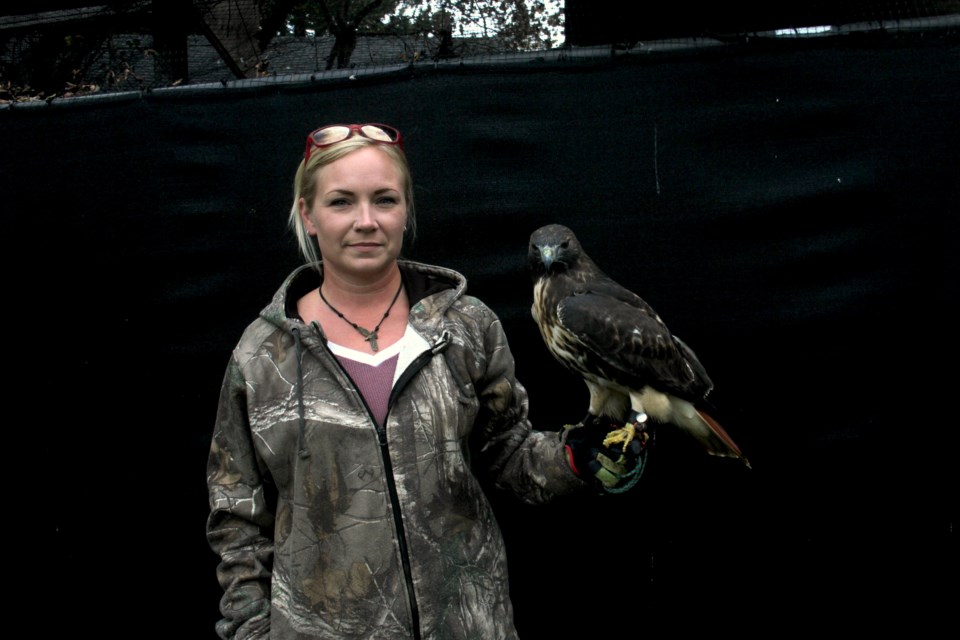THUNDER BAY – A local bird rescue will expand its ability to rehabilitate birds of prey after Thunder Bay’s city council agreed to let it lease unused parts of the former wildlife exhibit at Chippewa Park.
Thunderbird Wildlife Rescue will look to set up at Chippewa later this year after council gave the the arrangement its approval Monday night.
Founder Jenn Salo told councillors there’s a dire need for the organization’s efforts, saying she’s taken in more than 150 raptors from across the region since 2017.
The public response has been “overwhelming,” she said, with people from Thunder Bay to remote First Nations alerting her to injured birds.
“The efforts of one person running a small backyard rescue have been so far-reaching, yet it has become evident that I don’t have the ideal space and resources to keep up with the demand for wildlife rescue,” she said.
The new space will allow her to accept eagles – an important step as bald eagles are the species she said she most commonly deals with. She's previously had to send eagles to rescues in Southern Ontario because she didn’t have access to 100-foot flight pens.
The lease agreement with the city will include flight pens, along with the former bird motel and deer yard areas. Those were slated for demolition after the wildlife exhibit closed to the public in 2017.
Of a small number of animals who remained behind after the closure, only three elk remain, said parks manager Cory Halvorsen.
The city has not yet developed alternative plans for the former exhibit, he said, meaning Thunderbird’s use won’t impact the city.
“We hadn’t moved forward with any of the decommissioning because it wasn’t posing a hazard, there were no operations impacted by it, so it was tough to get it up the priority list,” he told councillors. “In that way, it worked out that we didn’t proceed with that prior to this opportunity coming forward.”
The lease rate of $5,000 can be reduced to around $3,500 by applying a standard discount for not-for-profits, city staff said.
Asked if that was within Thunderbird’s means, Salo said Ontario Wildlife Rescue had agreed to help with start-up costs, and she would continue independently fundraising.
Fort William First Nation also pledged to chip in for start-up costs like insurance, stating in a letter of support the region badly needs more wildlife rehabilitation services.
The First Nation has expressed its desire to see the Chippewa Park land, expropriated from the community by the federal government in 1905 to make way for a railway terminus, returned by the city.
In a statement, city manager Norm Gale told TBnewswatch the issue hasn’t been formally discussed since at least 2019.
“The relationship between the City and Fort William First Nation remains positive and progressive, as evidenced by the collaboration on the Thunderbird Raptor Rescue project,” he said.
“While no specific meetings have occurred recently regarding Chippewa Park lands, the City has a declaration of commitment to ongoing communication and partnership with the FWFN, including exploring land issues and the path forward together.”
The Friends of Chippewa Park group has also expressed support for Salo’s work.
Council voted unanimously Monday to authorize staff to sign a lease with Thunderbird Wildlife Rescue.
Salo has said she intends to have the facility up and running as soon as possible. The operation would be closed to the public, but could offer education opportunities at Chippewa Park.





